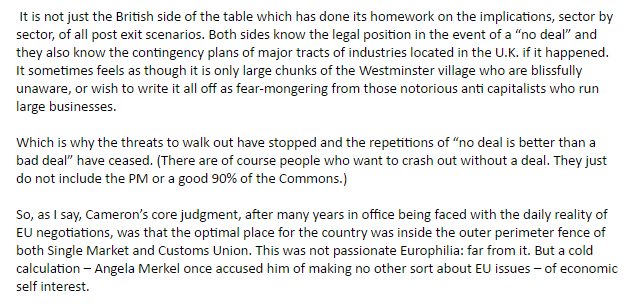I wanted to dig into some of them.
I fear this will be a long and wonky thread. I'll do my best to keep things accessible.
But don't expect big price drops.
The EU doesn't trade under those rates with its FTA partners, the developing countries it provides preferential access to, or of course, internally within the EU.
The pound has dropped 25% against the global reserve currency (the USD) over the last five years. That's ten times the 2.6% average weighted EU non-agricultural tariff.
xe.com/currencycharts…
First, note these two claims are mutually exclusive, despite often being uttered in the same breath.
If the UK liberalizes all the protectionist EU tariffs for everyone in the WTO, it can't then turn around and use them as bargaining chips.
The UK negotiators offer to drop tariffs on oranges (something this potential FTA partner produces and UK doesn't) for a concession on something the UK wants.
Awesome, but here's how the partner might look at it:
There's no big domestic industry lobbying to keep orange tariffs high, so dropping it doesn't require difficult conversations at home.
That cheapens the concession a bit.
That means, every other FTA the UK signs with an orange producer is likely to dilute the advantage this concession offers, cheapening it again.
For example, oranges from South Africa enter the EU at a 0% tariff rate because of an EPA.
However, it's important to be realistic in evaluating how much the UK will be able to secure for it.
Discussions of liberalizing trade and getting rid of tariffs are easy to have in the abstract but get a lot thornier once there are domestic producers in the room.
Remember: no domestic producer ACTUALLY likes foreign competition.









